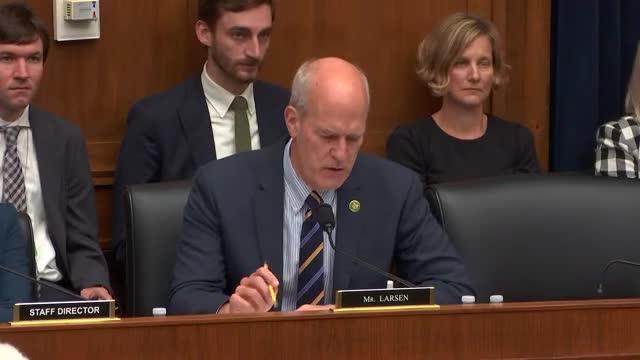Transit Safety Crisis Sparks Urgent Call for Action
June 14, 2024 | Transportation and Infrastructure: House Committee, Standing Committees - House & Senate, Congressional Hearings Compilation

This article was created by AI summarizing key points discussed. AI makes mistakes, so for full details and context, please refer to the video of the full meeting. Please report any errors so we can fix them. Report an error »

During a recent government meeting, discussions centered on the pressing issue of safety for transit workers and the effectiveness of newly implemented policies aimed at reducing crime on public transportation. The meeting highlighted the establishment of joint labor management safety committees and the need for improved reporting on assaults against transit workers.
Mister Regan noted that the final rule regarding these safety measures was announced just a month ago, emphasizing the importance of collaboration between transit agencies and labor partners. He expressed hope that agencies would recognize their workers as valuable assets in addressing safety concerns, particularly as crime rates on public transit have surged. In Minnesota alone, reports indicated 1,248 criminal incidents, including 230 assaults, from January to April 2024, raising alarms about the safety of both workers and commuters.
The conversation also touched on the impact of recent policies that critics argue have contributed to rising crime rates. Some lawmakers pointed to changes that reduced penalties for fare violations and replaced police officers with non-police agents, which they claim have failed to deter criminal behavior. Regan acknowledged the catastrophic consequences of violence against transit workers, including fatalities, and stressed the need for more active engagement from transit agencies to ensure worker safety.
Furthermore, the meeting addressed the implementation of protective measures, such as driver enclosures in buses, which have reportedly led to a significant decline in incidents. Industry representatives highlighted the importance of listening to operators' feedback to enhance safety features in transit vehicles. The discussion underscored a commitment to improving the work environment for transit operators while ensuring the safety of passengers.
As transit agencies work to adopt new safety plans, the timeline for implementation remains uncertain, with varying requirements across different agencies. However, there is a collective agreement on the necessity of prioritizing safety to restore public confidence in transit systems and encourage ridership.
Mister Regan noted that the final rule regarding these safety measures was announced just a month ago, emphasizing the importance of collaboration between transit agencies and labor partners. He expressed hope that agencies would recognize their workers as valuable assets in addressing safety concerns, particularly as crime rates on public transit have surged. In Minnesota alone, reports indicated 1,248 criminal incidents, including 230 assaults, from January to April 2024, raising alarms about the safety of both workers and commuters.
The conversation also touched on the impact of recent policies that critics argue have contributed to rising crime rates. Some lawmakers pointed to changes that reduced penalties for fare violations and replaced police officers with non-police agents, which they claim have failed to deter criminal behavior. Regan acknowledged the catastrophic consequences of violence against transit workers, including fatalities, and stressed the need for more active engagement from transit agencies to ensure worker safety.
Furthermore, the meeting addressed the implementation of protective measures, such as driver enclosures in buses, which have reportedly led to a significant decline in incidents. Industry representatives highlighted the importance of listening to operators' feedback to enhance safety features in transit vehicles. The discussion underscored a commitment to improving the work environment for transit operators while ensuring the safety of passengers.
As transit agencies work to adopt new safety plans, the timeline for implementation remains uncertain, with varying requirements across different agencies. However, there is a collective agreement on the necessity of prioritizing safety to restore public confidence in transit systems and encourage ridership.
View full meeting
This article is based on a recent meeting—watch the full video and explore the complete transcript for deeper insights into the discussion.
View full meeting